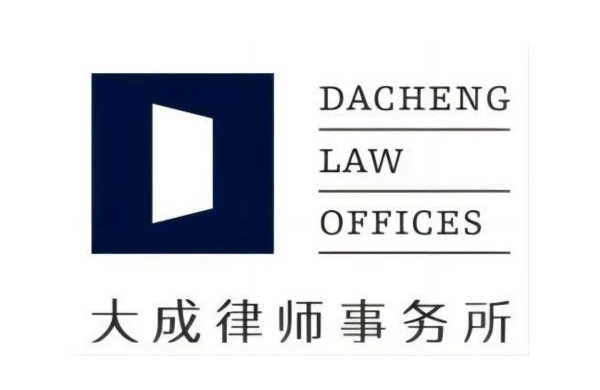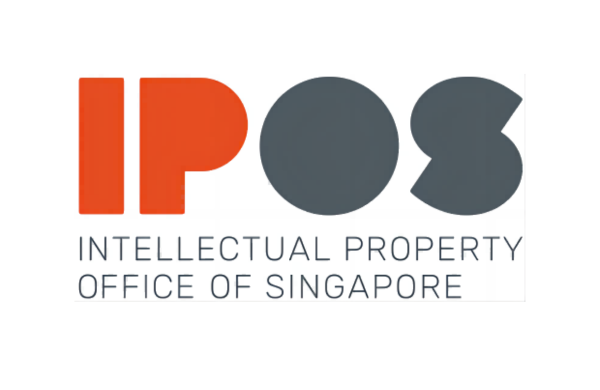Did not receive verification mail? Please confirm whether the mailbox is correct or not Re send mail

IPR Daily
- 2022-09-26 16:42:34
Greater China: A Discussion on the Distribution of Burden of Proof in Trademark Non-use Cancellation Actions
The non-use cancellation is one of the most important rules in the trademark laws in the worldwide. The purpose of the rule is to prompt the use of the registered trademarks and to avoid the idle of trademark registrations, especially in the jurisdictions where first–to-file system is adopted. In a non-use cancellation action, the trademark registration should be cancelled or not, is subject to the fact that whether the mark is used or not. Theoretically, this fact could be proved either by the Applicant of the non-use cancellation that no use has been made by the registered owner in a prescribed period of time, or by the registered owner that the mark has been used during the said time. Who should bear the burden of proof in the trademark cancellation actions? This varies in different jurisdictions. In this essay, we will discuss the practice in the Greater China, namely, mainland China, Hong Kong, Macau and Taiwan.
Before the discussion of local practice in each jurisdiction, let us talk about the duality nature of burden of proof on either the Applicant of non-use cancellation or the registered owner first. From the registered owner’s perspective, they are the rightful owner of the trademark and this should not be interfered by any one, especially in the condition where the mark has been used by the registered owner, or the registered owner has reasonable ground for non-use. Meanwhile, the cancellation of a registered mark is beneficial for the Applicant of non-use cancellation action, but against the registered owner. Therefore it is more reasonable or justice that the burden of proof should be borne by the Applicant of non-use cancellation, other than the registered owner. Whereas, from another perspective, the non-use of a mark is a negative fact and it is difficult to prove a negative fact in the most circumstances. In this sense, it is more efficient to prove the positive fact which is use of the mark than a negative fact which is non-use of the mark. Therefore, it is the registered owner who should to prove the use of the mark. Efficiency or justice, which one is more important? When conflict rises, it is subject to each jurisdiction’s choice.
In mainland China, the burden of proof is located to the trademark owner1. If the registered owner fails to prove the use of the mark2, his mark will be cancelled. Although in practice, the Applicant of the non-use cancellation needs to file a preliminary evidence to show that the mark has not been used within three year before the non-use cancellation date, the evidence could be a simple online search without a thorough investigation. Obviously, this rule is made in consideration of social efficiency. It is widely aware that China has a vast territory. It is not possible to undertake an investigation in every village or country from each city or province, so that the proof of non-use is not possible or at least economic. In case an investigation by questionnaires is an option, how many samples will be required to prove non-use of a trademark in the whole country? Since the non-use evidence could not been provided by the Applicant of non-use cancellation, the burden of proof should go to the registered owner. Unluckily, there is no money reward for the registered owner if his trademark registration is maintained by producing the evidence of use. To conclude, it is efficiency that is more important than fairness in mainland China, so that the registered owner bear the burden of proof in the non-use cancellation action.
What is the practice Hong Kong? The practice in Hong Kong is quite different from that in Mainland China. According to Article 79(1) of the Hong Kong Trademarks Ordinance, "••• the register shall be prima facie evidence of anything required or authorized by this Ordinance or the rules to be registered.", and Article 80 "In any proceedings relating to a registered trade mark, including proceedings for rectification of the register, the registration of a person as owner of a trade mark shall be prima facie evidence of the validity of the original registration and of any subsequent assignment or other transmission of it.” Accordingly, the registered owner is the legal right holder of the trademark and if the “prima facie evidence” needs to be overturned, the Applicant of non-use cancellation must prove to the contrary. This is also regulated by the Hong Kong Trademark Rules 36 (2), namely, “The application shall be accompanied by a statement of the grounds on which the application is made and evidence in support of the application.” In case the Applicant doses not submit preliminary evidence when filing the non-use cancellation, such cancellation will not be accepted.
However, it does not mean that the Applicant bears all the burden of proof of non-use. When the initial burden of proof is met by the Applicant, the burden of proof will swift to the registered owner. According to Hong Kong’s Trademarks Ordinance Article 82 (1) “If, in any civil proceedings under this Ordinance in which the owner of a registered trade mark is a party, a question arises as to the use to which the trade mark has been put, the burden of proving that use shall lie with the owner.” To sum up, the burden of proof is shared by the Applicant and the registered owner. The Applicant should prove that there is high possibility that the targeted trademark has not been used in the prescribed period of time. If such requirement is not met, the cancellation will not be accepted. If such requirement is met, the registered owner should prove that his trademark has been used. If no evidence of use is filed or the evidence as filed is not sufficient, the trademark registration will be cancelled. Please refer to the following non-use cancellation case in Hong Kong.
Tsinghua Unigroup, a company incorporated in mainland China, filed a non-use cancellation action against the Hong Kong trademark No. 303760164 for "UNIC" on December 18, 2019. The non-use evidence filed by Tsinghua Unigroup includes 1) the search records of the Hong Kong Yellow Pages and the Hong Kong Trade Development Council, showing that no information is available for the registered owner, 2) searching record of the database of Hong Kong Companies Registry, showing the Chinese name of the registered owner. And search record of the Hong Kong Trade Development Council, showing that no information is available for the revealed Chinese name of the registered owners; 3) a report of an on-site visit to the registered address of the owner, showing that no activities is undertaken in the registered address by the trademark owner.
After receiving the cancellation action, the Hong Kong Intellectual Property Department accepted it in formality and notified the registered owner to defend the cancellation. The registered owner did not defend the cancellation action within the required deadline. After all deadline passed, the Hong Kong IP Department examined the grounds of cancellation and the evidence as produced.
The Hong Kong IP Department refused to cancel the trademark registration, because the examiner opines that the evidence as provided by the Applicant is insufficient to show the high possibility of non-use of the mark in Hong Kong. According to the official decision, although it is disclosed that the registered owner is inactive in Hong Kong, it does not necessarily prove that the mark has not been used in Hong Kong. Since the high possibility of non-use is not proved in this case, the non-use cancellation is refused.
Hong Kong choses the justice over the efficiency and meanwhile shows a good example to balance justice and efficiency. Is it same in Macau, another Chinese special administrative region? Let us read the legislation first. Accordingly to paragraph 5 of Article 232 of the "Industrial Property Acts" of Macao , "The registered right holder or, if any, the person licensed by it, shall be responsible for certifying the use of the trademark, otherwise it is presumed that the trademark has not been used." It can be concluded that the burden of proof for the use of mark is borne by the registered owner, which is quite the same as that in the mainland China.
An example will make everything clearly3. The Hong Kong Land Limited Company is a company headquartered in Hong Kong and has registered the trademark “LANDMARK" for the services in class 42 in Macau in 2008. However, it is trying to registered the Chinese version for “LANDMARK" but was not successful. In 2012, a non-use cancellation has been filed against the Hong Kong Land’s Macau trademark registration No. N/12115 for “LANDMARK" in class 42. Hong Kong Land produced the evidence of use, together with the non-use reasons in response to the non-use cancellation. The evidences were advertisements made in the Hong Kong Landmark Oriental Mandarin Hotel located in No. 1 Plaza in Macau. The non-use excuse was that the English and Chinese version was planned to be used together, since the most consumers in Macau speak Chinese as their mother tongue. However, as the Chinese trademark was not registered successfully, the English mark has not been used on a larger scale. Both the evidence of use and the excuse of non-use were not accepted by Macau IP Office. The IP Office ruled that the evidence shows the use of the mark for hotel service in class 43, instead class 42. With regard to the reason for not using the mark on a large scale is also refused because the reason for not use is a subjective reason, instead of an objective reason. This decision was maintained in the intermediate court of Macao.
Unlike mainland China and Macau, Taiwan adopts similar practice as that in Hong Kong. According to Article 63(2) of the "Trademark Law" in Taiwan, "IP Office in Taiwan is entitled to cancel the mark ex officio or upon application of a third party, in the condition that the registered mark has not been used for three consecutive years after registration.” Regarding the burden of proof for non-use cancellation, it is stipulated in article 654 of Taiwan "Trademark Law". In practice, the Applicant of non-use cancellation needs to provide evidence to prove that the trademark has not been used for commercial purposes. If the evidence is insufficient, the cancellation application will be rejected. If the evidence of non-use could prove that the mark is probably not used or the examiner could suspect that the mark has not been used, the examiner will send the non-use cancellation to the registered owner and ask them to file evidence of use. If the registered owner fails to submit evidence of use within the time limit, the trademark will be cancelled.
Let’s take a case for example. In 2021, a non-use cancellation was filed by Guangdong Talent Science and Technology Co., Ltd. against the Taiwan trademark registration No. 01558769 for "little genius (in Chinese) Okidscan" in class 41 owned by Lipin International Co., Ltd. The Applicant of non-use submitted a group of non-use evidence, including 1) Visiting report to the address of the registered owner, showing that the registered owner was not found to be operating in that place, and the said place has become the address of other business entities; 2) search record from Taiwan’s industrial and commercial registration data, showing that the registered owner was dissolved in 2014; 3) search records for the Google search engine, revealing two websites which used the trademark. The last updates of these websites were made in the year 2012 and 2013 respectively. Although these two website are still available, no interaction was made. 4) Search records from the popular online shops, like bid.yahoo.com, ruten.com.tw and shopee.tw, no result is revealed during the search.
After examining the above evidences, the examiner accepted the non-use cancellation application, so he notified the registered owner to submit the evidence of use. The registered owner did not submit the evidence of use within the time limit, so the trademark was cancelled. We can conclude that efficiency and justice are balanced in the non-use cancellation action in Taiwan.
To conclude, mainland China and Taiwan adopts similar practice, where the registered owner bears the burden of proof in a non-use cancellation. Whereas Hong Kong and Taiwan adopts different practice, in which the Applicant of non-use cancellation and the registered owner share the burden of proof in a non-use cancellation action. These are subject to difference choices in each jurisdiction, balancing justice and efficiency. However, is there any better choice?
1 Articles 66 of Regulation for Implementation of Trademark Law of China: if, at the expiry of the time limit, no evidence of use is provided or the evidence provided is invalid and there are no proper reasons for non-use, the Trademark Office shall cancel the registered trademark.
2 In this article, the reason for non-use is not included in the discussion.
3 Refer to the collegiate panel decision of the Intermediate Court No. 39/2014.
4 The Trademark Office shall notify the trademark owner of the non-use cancellation and provide a time limit to submit the evidence of use. When the trademark owner submits a statement of defense, the Trademark Office shall serve the statement of defense to the Applicant of non-use cancellation. However, if there is no specific evidence of non-use or the ground of non-use is clearly unreasonable, the non-use cancellation should be rejected initially. Under the circumstances specified in Article 63 (2), where the notice of non-use cancellation is served, the trademark owner shall prove the use of trademark. Those who fail to respond within the prescribed period of time, the trademark will be cancelled.”
Author
Yanxia Du

Attorney at Law / Trademark Attorney
Partner
After 16 years of service at one of the leading IP firms in China, Mrs. Du obtained substantial experience in the IP filed, especially in the trademark protection strategies and trademark prosecutions. Mrs. Du represents a great number of Chinese companies in protecting their trademark in both mainland China and abroad. The main clients of Mrs. Du are Huawei, OPPPO, Segway, Sany, Zoomlion, His Master’s Voice, LOTTE, Tesco, etc. Owing to Mrs. Du’s substantial experience and thoughtful attitude, Mrs. Du helped a great number of clients in solving their difficulties by offering creative solutions.
Source: Yanxia Du
Editor: IPR Daily-Ann
- I also said the two sentence
- Also you can enter 140words
 PurpleVine Successfully Assists Client in Invalidating Sisvel US Patent
PurpleVine Successfully Assists Client in Invalidating Sisvel US Patent Chang Tsi & Partners Successfully Represents Wuxi's First Intellectual Property Civil Case Attached to Criminal Case
Chang Tsi & Partners Successfully Represents Wuxi's First Intellectual Property Civil Case Attached to Criminal Case China Monthly Antitrust Update: February 2024
China Monthly Antitrust Update: February 2024 IPOS was publishing a legal decision involving the trademark of tech giant, Google
IPOS was publishing a legal decision involving the trademark of tech giant, Google


